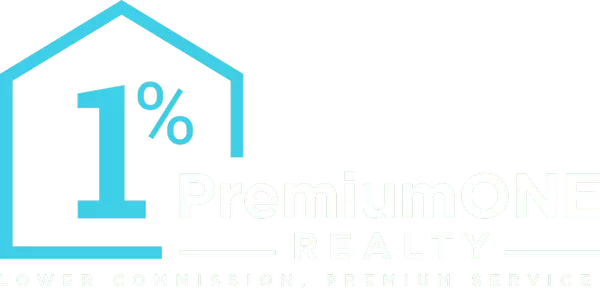8 Most Googled Questions about Real Estate in 2025


The real estate landscape continues to evolve in 2025 as market trends, technology, and buyer priorities shift. From rising interest rates to smart home technology, this year’s most Googled questions reflect the changes and challenges many people are navigating in the real estate world. Here’s a breakdown of the top questions asked about real estate in 2025—and the answers you need to know.
1. Is 2025 a good year to buy a home?
Many prospective buyers are wondering if 2025 is the right time to purchase a home. The short answer? It depends on your goals, location, and financial situation.
Interest rates in 2025 may remain higher than the historically low rates seen in recent years, but they are showing signs of stabilization. This shift has resulted in a slower market pace in some regions, giving buyers more negotiation power than before. In addition, new construction trends and inventory improvements are creating opportunities for buyers looking for modern, energy-efficient homes.
While market conditions fluctuate, real estate continues to be one of the most reliable investments. If you have the means to purchase and plan to stay in your home for several years, 2025 could still be an excellent time to buy and begin building equity. Consulting with a trusted real estate professional will give you a clear picture of what to expect in your local market.
Interest rates in 2025 may remain higher than the historically low rates seen in recent years, but they are showing signs of stabilization. This shift has resulted in a slower market pace in some regions, giving buyers more negotiation power than before. In addition, new construction trends and inventory improvements are creating opportunities for buyers looking for modern, energy-efficient homes.
While market conditions fluctuate, real estate continues to be one of the most reliable investments. If you have the means to purchase and plan to stay in your home for several years, 2025 could still be an excellent time to buy and begin building equity. Consulting with a trusted real estate professional will give you a clear picture of what to expect in your local market.
2. What are the biggest real estate trends in 2025?
Several trends are shaping the real estate market in 2025, including advancements in technology, sustainability, and remote work dynamics. Here are a few key shifts:
-
Eco-Friendly Homes: Buyers are prioritizing energy-efficient homes with features like solar panels, smart HVAC systems, and sustainable building materials. Green homes not only reduce utility bills but also appeal to environmentally conscious buyers.
-
Smart Homes: Integrating AI-powered smart technology is now a must for luxury homes and new developments. Smart security systems, voice-activated appliances, and energy management tools are more accessible than ever.
-
Remote Work and Hybrid Spaces: Homes with dedicated office spaces, multi-use rooms, and fast internet connectivity are in high demand as remote work remains prevalent.
-
Affordability Trends: Suburban and mid-sized markets continue to attract buyers looking for affordable options while still offering a good quality of life.
Understanding these trends will help both buyers and sellers stay ahead of the competition and make more informed decisions.
3. How much do I need for a down payment in 2025?
The down payment question is as relevant as ever, and the answer largely depends on the type of loan you’re using to purchase a property. While many people believe they need 20% down, that’s not always the case.
For conventional loans, down payments can start as low as 3-5%, depending on your credit score and lender requirements. Government-backed loans, like FHA loans, may require as little as 3.5%, while VA loans for veterans often require no down payment at all.
The most important step is assessing your financial health and determining what’s manageable for your budget. Saving for a larger down payment can lower monthly mortgage payments, but it’s not a barrier to homeownership if you’re ready to buy.
For conventional loans, down payments can start as low as 3-5%, depending on your credit score and lender requirements. Government-backed loans, like FHA loans, may require as little as 3.5%, while VA loans for veterans often require no down payment at all.
The most important step is assessing your financial health and determining what’s manageable for your budget. Saving for a larger down payment can lower monthly mortgage payments, but it’s not a barrier to homeownership if you’re ready to buy.
4. What will happen to home prices in 2025?
Home prices remain a hot topic for buyers and sellers alike. While real estate markets vary across the country, experts predict that price appreciation will moderate in 2025 compared to the rapid spikes of previous years.
Markets that experienced sharp price increases may see slower growth or even slight corrections, providing more breathing room for buyers. However, high-demand areas with limited inventory will likely continue to see gradual price increases.
For sellers, pricing your home competitively and strategically is key in 2025. Partnering with a knowledgeable real estate agent can ensure you maximize your return on investment, even as the market adjusts.
Markets that experienced sharp price increases may see slower growth or even slight corrections, providing more breathing room for buyers. However, high-demand areas with limited inventory will likely continue to see gradual price increases.
For sellers, pricing your home competitively and strategically is key in 2025. Partnering with a knowledgeable real estate agent can ensure you maximize your return on investment, even as the market adjusts.
5. Should I buy or rent in 2025?
The decision to buy or rent depends on your long-term goals and current lifestyle. Buying a home builds equity, provides stability, and offers tax benefits, but it comes with upfront costs like a down payment and maintenance expenses.
On the other hand, renting offers flexibility, especially for those who aren’t ready to settle in one location. However, with rental prices continuing to rise in many areas, buying may still offer a better financial outcome over time.
To determine which option is right for you, consider your financial readiness, job stability, and long-term plans. If you plan to stay in one place for five years or more, buying often proves to be the smarter choice.
On the other hand, renting offers flexibility, especially for those who aren’t ready to settle in one location. However, with rental prices continuing to rise in many areas, buying may still offer a better financial outcome over time.
To determine which option is right for you, consider your financial readiness, job stability, and long-term plans. If you plan to stay in one place for five years or more, buying often proves to be the smarter choice.
6. What does the home-selling process look like in 2025?
The home-selling process in 2025 has become more streamlined, thanks to advancements in real estate technology. Digital platforms make it easier than ever for sellers to market their homes to a wide audience, with tools like virtual tours, drone photography, and AI-powered staging leading the way.
Key steps in the selling process include:
Key steps in the selling process include:
-
Hiring an agent who understands your market and can provide a competitive analysis.
-
Preparing your home through staging, decluttering, and repairs to appeal to buyers.
-
Listing and marketing your property with high-quality visuals and strategic pricing.
-
Navigating offers and closing the deal with an experienced agent guiding you through negotiations and paperwork.
Working with a seasoned professional ensures you’ll attract serious buyers and secure the best possible sale price.
7. How can I make my home stand out in 2025?
In a competitive market, making your home stand out is critical. Here are a few tips:
-
Focus on Curb Appeal: Fresh landscaping, a new front door, and exterior lighting can make a strong first impression.
-
Highlight Smart Features: If your home has smart technology, like automated lighting, security systems, or energy-efficient upgrades, make sure buyers know.
-
Embrace Sustainability: Green features like solar panels, smart thermostats, and energy-efficient appliances appeal to eco-conscious buyers.
-
Stage Your Home: Professional staging can help buyers envision living in the space, boosting your home’s appeal.
By combining modern updates with timeless features, you can attract buyers and increase your home’s value.
8. Is investing in real estate still worth it in 2025?
Real estate remains one of the most reliable and rewarding investments. While market conditions fluctuate, property generally appreciates over time, offering steady returns.
In 2025, savvy investors will focus on rental properties, multi-family units, and emerging markets that offer strong growth potential. Diversifying your real estate portfolio and partnering with experts can help you maximize returns while mitigating risks.
As 2025 brings new opportunities and challenges to the real estate market, understanding the most Googled questions provides valuable insights for buyers, sellers, and investors alike. Whether you’re planning to buy your first home, sell your property, or explore investment opportunities, staying informed is key to success.
Partner with Lisa Turek
For personalized advice and expert guidance on navigating the 2025 real estate market, reach out to Lisa Turek. With her extensive knowledge and dedication to her clients, Lisa will help you achieve your real estate goals with confidence.
Categories
Recent Posts

Buying a Home in Montclair, NJ

Everything You Need to Know About Moving to Montclair, NJ

Ultimate Guide to Selling Your House in Short Hills, NJ

Thinking About Moving to Short Hills? Here are Things You Need to Know

10 Best Restaurants in Montclair, NJ

Before You Buy Your First Home in Short Hills, NJ, Follow These Tips

Fitness Centers and Gyms in Short Hills, NJ

A Guide to Montclair, NJ Parks

Architectural Landmarks in Montclair, NJ

6 Day Trips from Montclair, NJ

